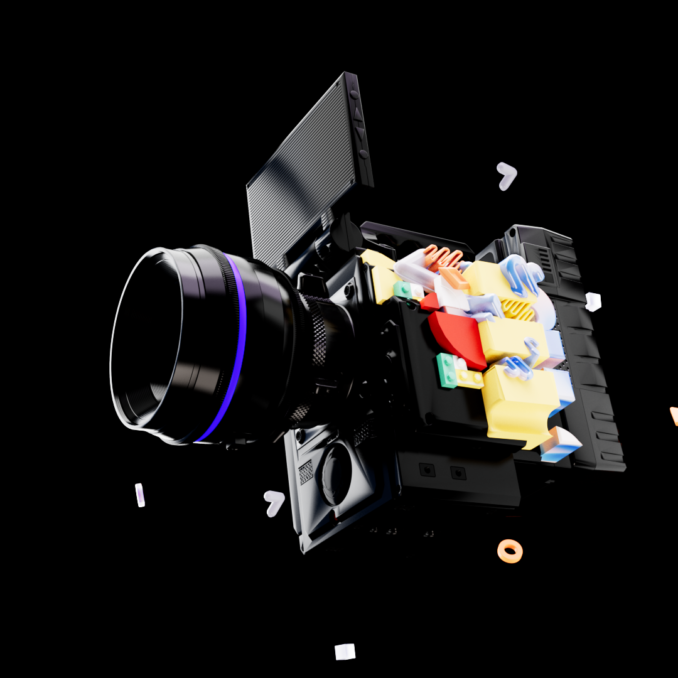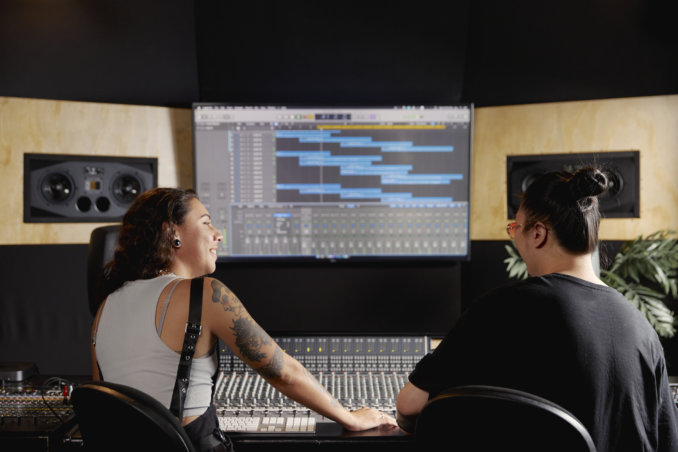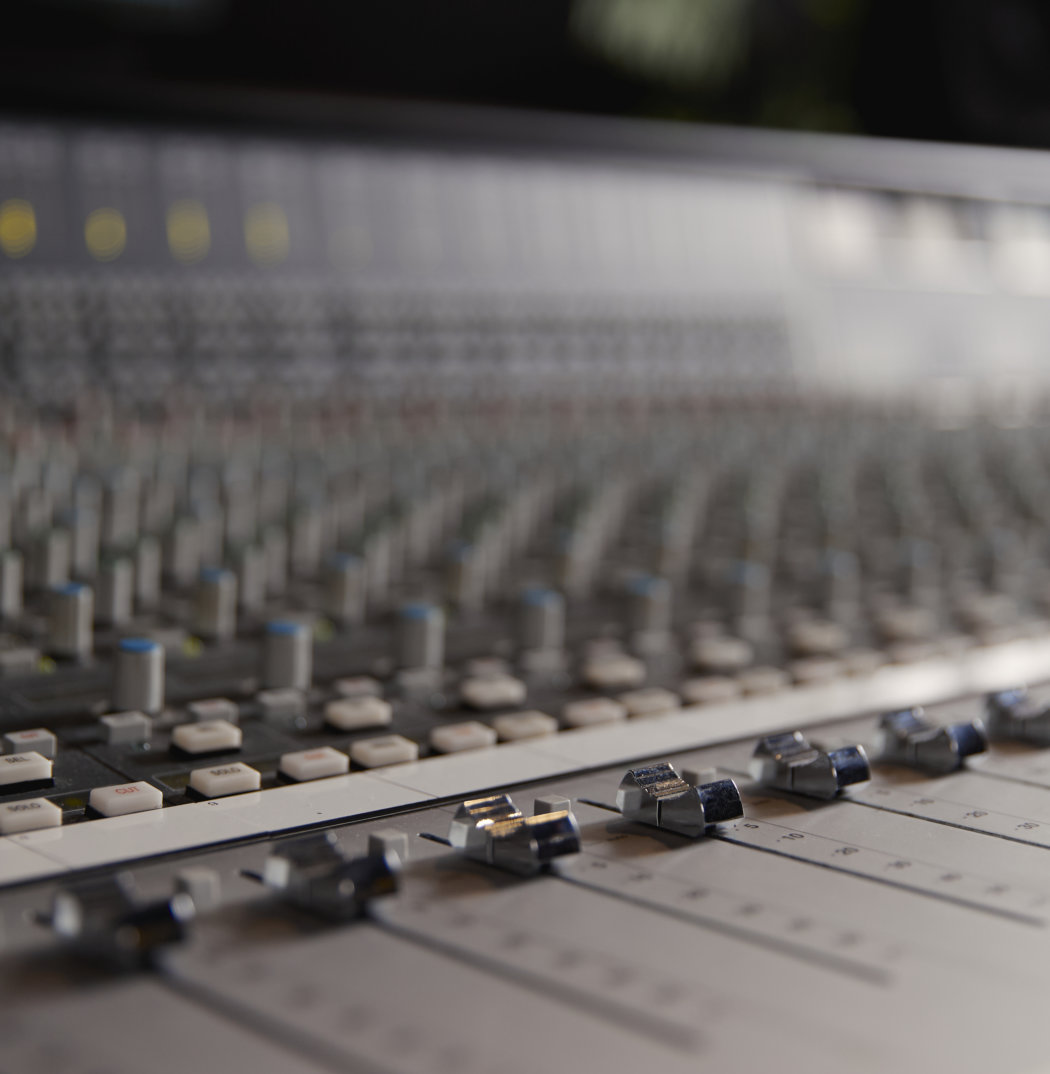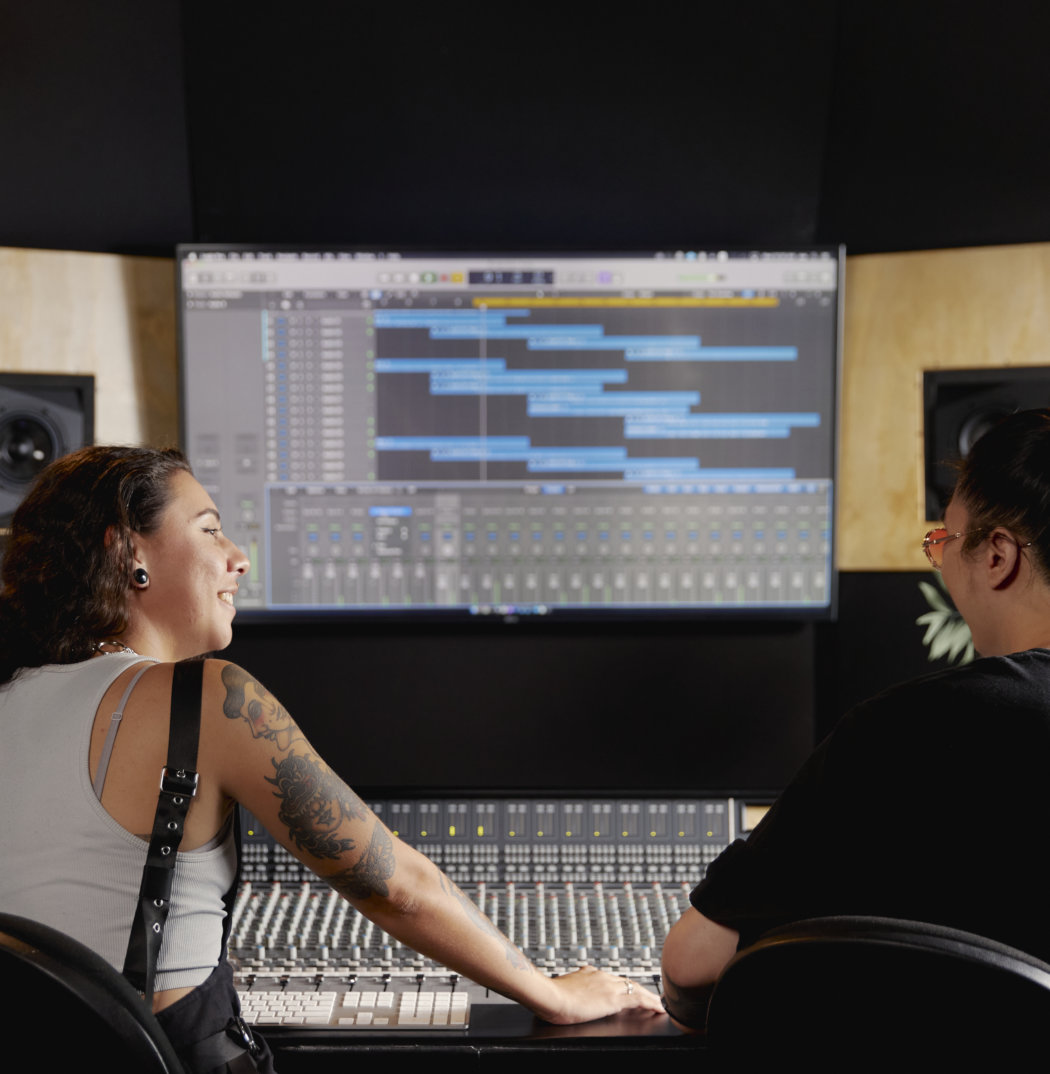Diploma in Audio Production
GET ON TRACK TO MAKE SERIOUS NOISE IN THE AUDIO INDUSTRY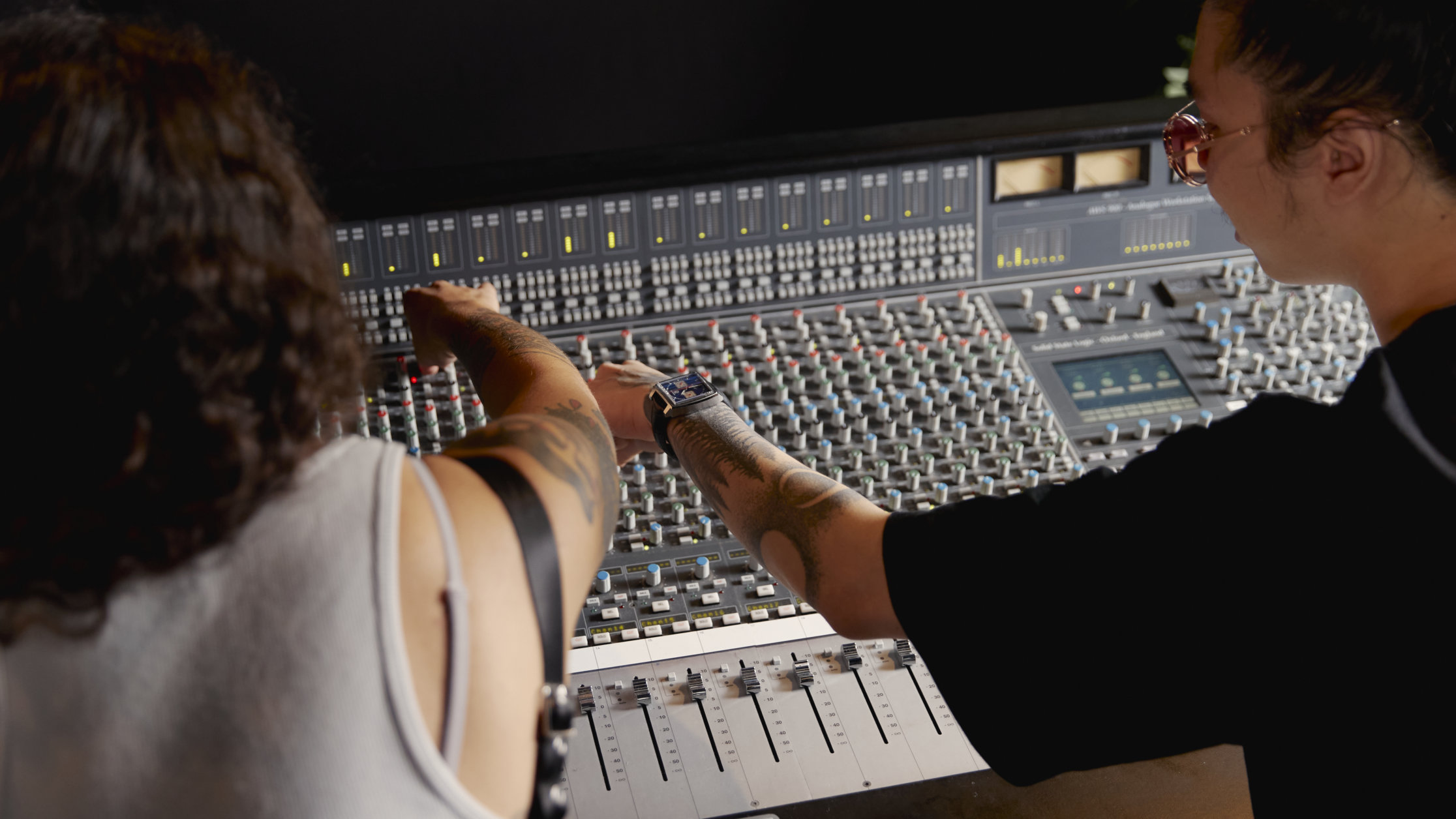
Available at
Auckland
Fees
Diploma in Audio Production
Domestic Fees
$11,981 NZD
Year One (Level 5)
Administration Fee: $500.00 (one-off fee)
Tuition Fee: $11,481
Domestic Students Only*
Programme fees may be paid by Student Loan. Fees must be paid annually, prior to the commencement of study.
This programme receives funding from TEC and is NZQA approved, therefore is eligible for the ‘Fees Free’ scheme. To determine your eligibility, visit feesfree.govt.nz
For any queries regarding payment please contact: [email protected]
Diploma in Audio Production
International Fees
$25,194 NZD
Year One (Level 5)
Administration Fee: $500.00 (one-off fee)
Tuition Fee: $24,694
Fees must be paid annually, prior to the commencement of study.
For any queries regarding payment please contact: [email protected]
Duration(s)
Full time: 1 year
Diploma
Diploma in Audio Production
Course Durations
Full time: 1 year
Diploma
Start Date(s)
Auckland
February 2024
Diploma in Audio Production
Start Dates
Auckland
February 2024
Entry Requirements
Diploma in Audio Production
Domestic Entry Requirements
A copy of the student's valid photo ID must be provided.
Candidates are required to have gained a minimum of NCEA Level 2
Special Admission
Domestic applicants aged 20 years or above who have not met the General Admission or entry requirements for a programme but whose skills, education or work experience indicate that they have a reasonable chance of success may be eligible for Special Admission. Special admission will be granted at the discretion of the Academic Manager or designated nominee. Such applicants may be required to successfully complete a foundation, bridging or tertiary introduction programme as a condition of entry into higher level programmes.
Provisional Admission
Domestic applicants aged under 20 years who have not met the general academic admission and entry criteria for a programme but who can demonstrate a reasonable chance of success through other educational attainment and/or work or life experience may be eligible for provisional entry at the discretion of the Academic Manager. Provisional entry places restrictions on re-enrolment to be lifted if the applicant’s performance is deemed satisfactory by the Academic Manager.
English as an Additional Language Applicant requirement.
English as an Additional Language (EAL) applicants, including NZ Residents must meet standard NZQA minimum English Proficiency Outcomes for a diploma programme, i.e. for the academic version of IELTS they will require a score of 6 with no band score lower than 5.5, or acceptable equivalent as per the Code of Practice for the Pastoral Care of International Students.
An applicant must be a minimum of 17 years at the start date of the programme. Applicants aged less than 18 years old must apply with parental/guardian consent.
All students are given the tutorial and pastoral support needed to satisfactorily engage with the academic and technical demands of the programme, and in particular students entering with the minimum qualification of NCEA Level 2.
All entry is at the discretion of the Academic Manager.
Diploma in Audio Production
International Entry Requirements
Minimum Age: International students seeking admission to SAE must be at least 18 years of age at the time of application.
Proof of Identity: A copy of the student's valid passport must be provided.
Academic Requirements: Completion of the equivalent of NCEA Level 3 or University Entrance qualification.
English Language Requirements
International students who are not native English speakers need to provide additional evidence of language skills and complete one of the following:
International English Language Testing System (IELTS): A band score of 6 or higher (only the Academic Test is accepted), OR
Test of English as a Foreign Language (TOEFL): A score of 550 or higher (paper based test), 60 or higher (internet based test)
All entry is at the discretion of the Academic Manager.
Selection Process
Where there are more applicants than the number of places available a selection process may be applied. An offer of place in a diploma or degree programme would be extended to applicants who meet the entry criteria and demonstrate the potential to successfully complete the programme on the basis of:
A portfolio of work that represents the applicant’s level of achievement.
An interview.
Curriculum vitae (optional).
Applicants who submit a formal application to enrol in the programme, and who meet the entry criteria would be invited to submit a portfolio of work and participate in an interview. The purpose of the interview is to assess the applicants’ suitability for the programme. It will determine whether an applicant is offered a place in the programme, and if so, at what level of the programme the applicant will be offered a place. Applicants would be welcome to enlist whānau support.
YOUR CAREER IN AUDIO BEGINS NOW
THIS AUDIO COURSE COVERS:
Analogue and digital console theory and practice
Multi-track Recording
Audio technologies and protocols
Microphone theory and techniques
Signal processing and effects
Signal flow
Sound system setup and tuning
Monitoring systems
Wireless systems
Workplace safety
Mixing techniques
Course Structure
The Diploma of Audio Production is the first step towards a Bachelor of Audio Production
Trimester 1
Develop the essential technical skills and the knowledge required to collaborate with other creative media students and professionals.
Credit Points: 15
Introduces essential production tools and techniques, and explores sonic issues and implications of conducting a collaborative audio recording in a small-to-medium acoustic space. Introduces types of audio assets commonly developed in this space and introduces basic microphone techniques, recording, editing, mixing and mastering skills.
Introduces essential production tools and techniques, and explores sonic issues and implications of conducting a collaborative audio recording in a small-to-medium acoustic space. Introduces types of audio assets commonly developed in this space and introduces basic microphone techniques, recording, editing, mixing and mastering skills.
Credit Points: 15
Introduction to sound design, foley and ADR (Automated Dialogue Replacement) in various screen formats. Students will develop practical creative post production skills for limited scope productions.
Introduction to sound design, foley and ADR (Automated Dialogue Replacement) in various screen formats. Students will develop practical creative post production skills for limited scope productions.
Credit Points: 30
This 36-week course provides a platform for engagement with transferable skills via collaborative client projects which may include contracted roles within projects of more advanced student groups. With a key focus on employability in Aotearoa/New Zealand students engage with professional practice situated in the holistic ideals of Te Ao Maori. Students conduct peer review via the Transferable Skills Matrix in an effort to foster and develop employability skills.
This 36-week course provides a platform for engagement with transferable skills via collaborative client projects which may include contracted roles within projects of more advanced student groups. With a key focus on employability in Aotearoa/New Zealand students engage with professional practice situated in the holistic ideals of Te Ao Maori. Students conduct peer review via the Transferable Skills Matrix in an effort to foster and develop employability skills.
Trimester 2
Credit Points: 15
Explores sonic issues and implications of conducting a mix of a live on-stage performance. Introduces a range of audio, lighting and vision assets commonly developed in this space with relevant production techniques. Approaches to editing, mixing and mastering are explored in-studio. A reflective blog details the production process and challenges presented.
Explores sonic issues and implications of conducting a mix of a live on-stage performance. Introduces a range of audio, lighting and vision assets commonly developed in this space with relevant production techniques. Approaches to editing, mixing and mastering are explored in-studio. A reflective blog details the production process and challenges presented.
Credit Points: 15
Explores sonic issues and implications of conducting a collaborative audio recording in a medium-to-large acoustic space. Introduces types of audio assets commonly developed in this space, and develops recording, editing, mixing and mastering skills.
Explores sonic issues and implications of conducting a collaborative audio recording in a medium-to-large acoustic space. Introduces types of audio assets commonly developed in this space, and develops recording, editing, mixing and mastering skills.
Credit Points: 30
This 36-week course provides a platform for engagement with transferable skills via collaborative client projects which may include contracted roles within projects of more advanced student groups. With a key focus on employability in Aotearoa/New Zealand students engage with professional practice situated in the holistic ideals of Te Ao Maori. Students conduct peer review via the Transferable Skills Matrix in an effort to foster and develop employability skills.
This 36-week course provides a platform for engagement with transferable skills via collaborative client projects which may include contracted roles within projects of more advanced student groups. With a key focus on employability in Aotearoa/New Zealand students engage with professional practice situated in the holistic ideals of Te Ao Maori. Students conduct peer review via the Transferable Skills Matrix in an effort to foster and develop employability skills.
Trimester 3
Credit Points: 15
Introduction to audio-visual installation in stadia, theatres, concert halls, galleries and other commercial workplaces. Groups will engage with acousticians, designers and will observe installation, operational and acoustic testing processes.
Introduction to audio-visual installation in stadia, theatres, concert halls, galleries and other commercial workplaces. Groups will engage with acousticians, designers and will observe installation, operational and acoustic testing processes.
Credit Points: 15
Requires groups to produce a suite of outputs that display an individualised integration of production techniques acquired over the previous courses. Includes a reflective blog on the multiple ways such integration occurs and the effectiveness of such.
Requires groups to produce a suite of outputs that display an individualised integration of production techniques acquired over the previous courses. Includes a reflective blog on the multiple ways such integration occurs and the effectiveness of such.
Credit Points: 30
This 36-week course provides a platform for engagement with transferable skills via collaborative client projects which may include contracted roles within projects of more advanced student groups. With a key focus on employability in Aotearoa/New Zealand students engage with professional practice situated in the holistic ideals of Te Ao Maori. Students conduct peer review via the Transferable Skills Matrix in an effort to foster and develop employability skills.
This 36-week course provides a platform for engagement with transferable skills via collaborative client projects which may include contracted roles within projects of more advanced student groups. With a key focus on employability in Aotearoa/New Zealand students engage with professional practice situated in the holistic ideals of Te Ao Maori. Students conduct peer review via the Transferable Skills Matrix in an effort to foster and develop employability skills.
NZQA Course Codes
NZQA Level 5 Diploma (3 Trimesters)
New Zealand Qualifications Authority
NZQA: Level 5
This is an NZQA accredited programme of study that leads to the Level 5 NZ Diploma in Audio Production.
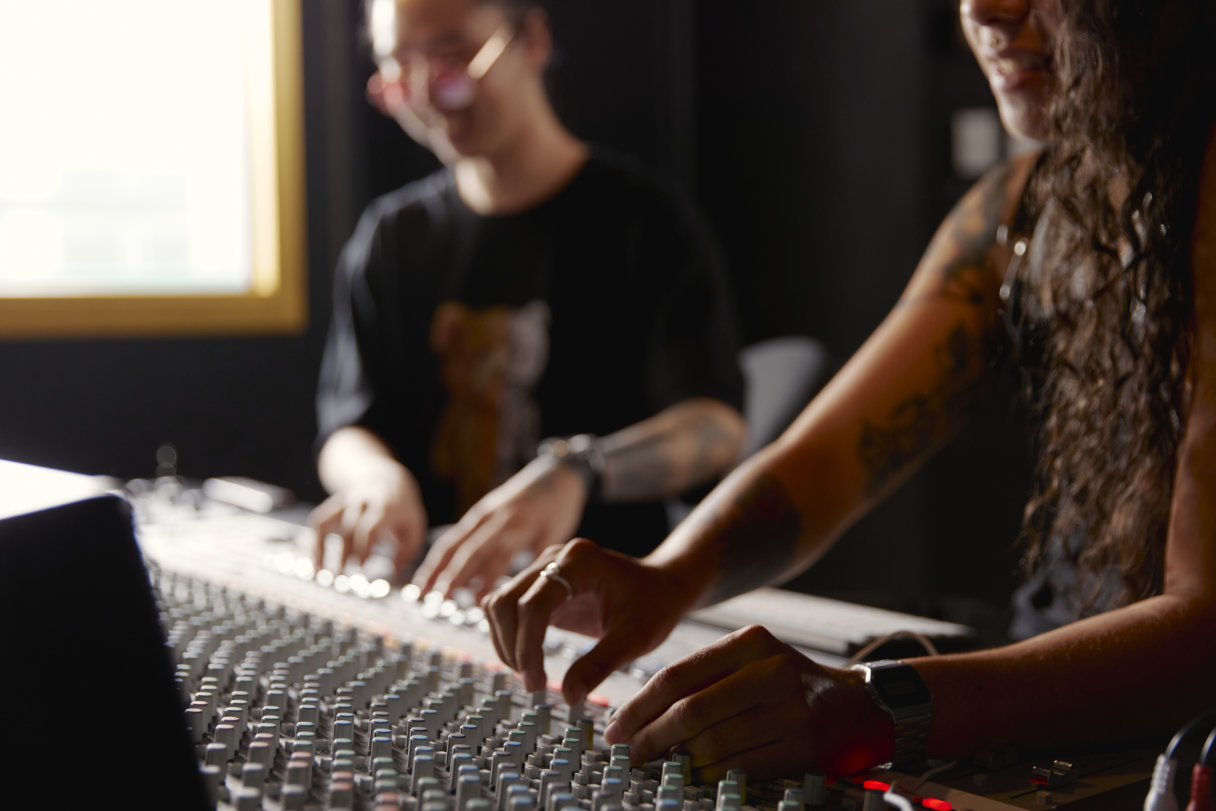
Career Outcomes
What jobs will this course lead me into?
- Game Audio Specialist
- Radio/Broadcast Personnel
- Junior Studio Administrator
- Audio Post Production Engineer
- Sound Designer
- Mix Engineer
- Studio Engineer
- Quality Assurance Officer
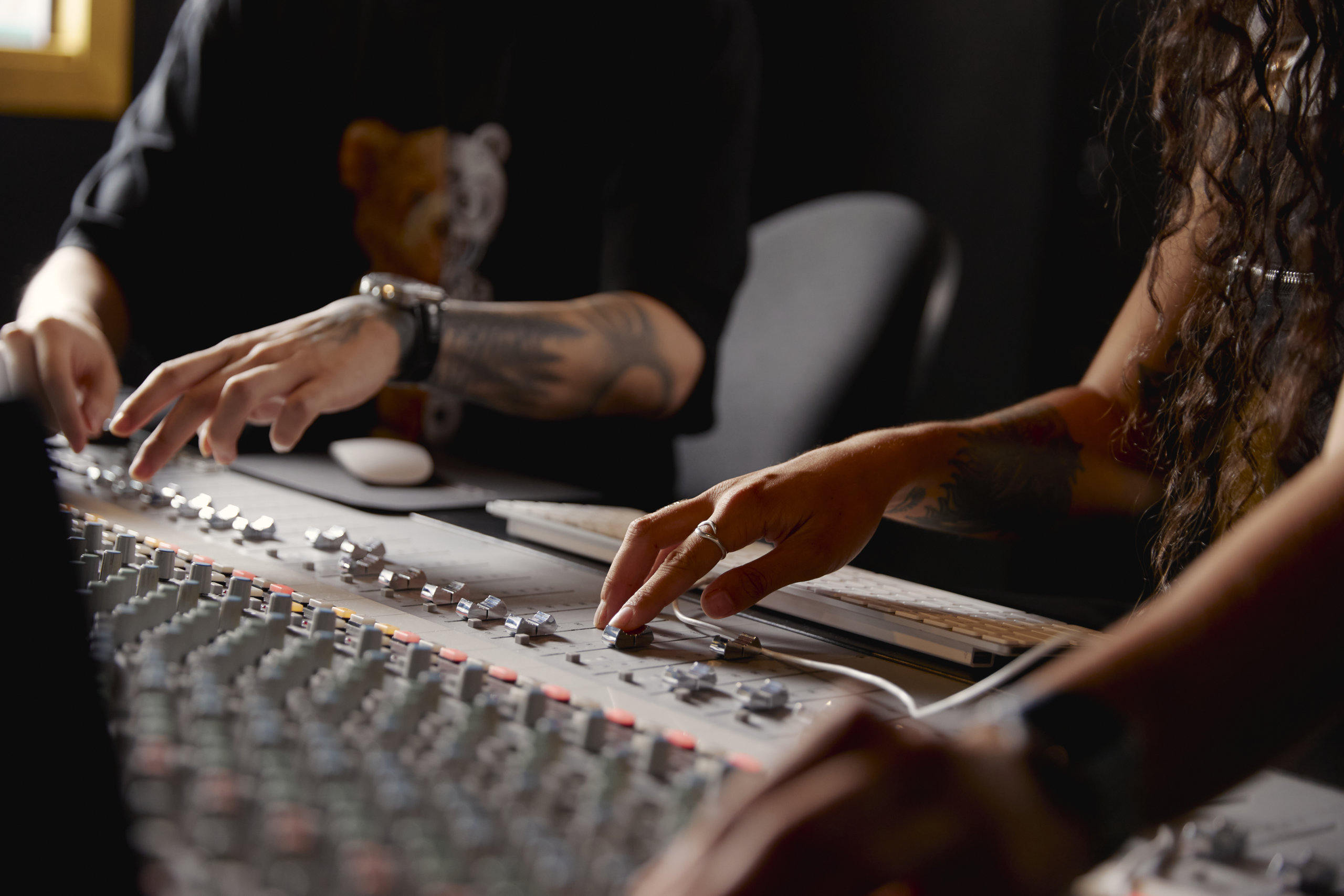
![SAE Logo White [Vert] (2)](https://www.sae.ac.nz/wp-content/uploads/sites/8/2022/04/SAE-Logo-White-Vert-2.png)








